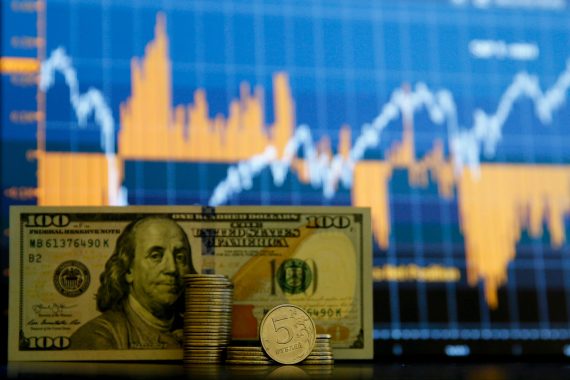The steep devaluation of the Turkish Lira against the U.S. dollar in August 2018 has mostly been attributed not to economic, but political reasons by many around the world – although most Western media outlets have tended to argue otherwise in a rather biased way as I discussed in my last column.
It should be noted that the abuse of the global reserve currency, the U.S. dollar, as a “financial weapon” against the countries that the U.S. is not happy with in political terms will have significant adverse consequences for the U.S. itself.
In today’s world, the U.S. dollar has certainly been in a rather dominant position as the reserve currency of the world. However, the U.S. economy is not that dominant at all in the world economy. First, although the share of the U.S. in the global trade is around 16 percent (14 percent of global exports and 18 percent of global imports), half of the total global trade is conducted via the U.S. dollar. Second, oil, gold and other commodities are overwhelmingly, if not totally, denominated in the U.S. dollar in global trade. Third, the U.S. dollar reserves comprise of around two-thirds (62.48 percent) of foreign-exchange reserves in central bank coffers around the world. Fourth, more than 80 percent of global foreign currency exchanges have been carried out with the U.S. dollar in either buy-side or sell-side.
The U.S. dollar had not been that strong in the past and certainly will not be in that position forever. The U.S. dollar has reached its current dominant position with the construction of the global economic/financial system by the U.S. itself during and in the wake of World War II. In this system, which is also called Bretton Woods, the U.S. dollar had been indexed to gold and other currencies had been tied to the U.S. dollar. However, in 1971 amid growing strains on the U.S. dollar, U.S. President Nixon severed the tie between the U.S. dollar and gold. This was the beginning of the end for the Bretton Woods system, which has gradually been replaced by neoliberalism in the 1970s and 1980s around the world. The U.S. dollar has managed to keep its title as the world’s reserve currency in this transition, due to the fact that the U.S. was the world’s biggest economy and hegemonic power and the U.S. dollar was firmly established in the global financial/economic order.
Recommended
No one can deny that the U.S. dollar, as the world’s reserve currency, contributes greatly to the U.S. economy. On the other hand, however, other countries also benefit from a steady economic/financial system “to an extent,” in which the U.S. dollar has a central place. But, the reputation of this structure has been tarnished by the myriad financial crises occurred since the introduction of neoliberalism and, of course, the global financial crisis of 2008-09. Lastly, using the U.S. dollar as a weapon against other countries in an effort to promote the political interests of the U.S. itself has become the final blow to the U.S. dollar. The U.S. dollar was meant to be the stabilizer of the world trade and economy, not the destabilizer.
Using the U.S. dollar with political motivations against Turkey will certainly damage the Turkish economy to an extent in the short run. However, the U.S. itself, will be the biggest loser of this financial warfare in the medium/long run. Because the U.S. dollar benefits other countries by providing a stable financial environment, in which financial transactions could be conducted without serious fluctuations in value. Moreover, the U.S. dollar serves the world as the global unit of account, or the yardstick, with which all sorts of assets can be compared in value easily globally. However, make no mistake: the U.S. is by far the biggest winner of this system. Yet, it is the U.S. itself marring it.
Although the U.S. is still the hegemonic power of the world, it is an apparent fact that its power has been waning in relative terms. The share of the U.S. economy in the world was 25 percent in 1950. It is just around 17 percent now. Moreover, in terms of purchasing power parity, China has surpassed the U.S. as the world’s biggest economy in 2011. The same thing will happen in terms of market exchange rates in the medium term. This means that the power of the U.S. dollar is destined to abate significantly. And it will possibly cease to be the reserve currency of the world in the medium/long term with dire consequences for the U.S., resulting in several reserve currencies. Using the U.S. dollar as a political weapon would only precipitate this fate.





